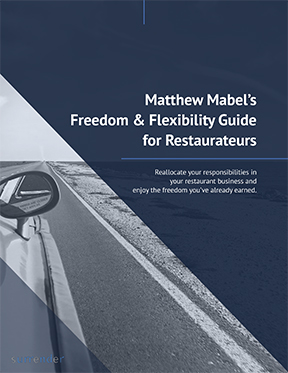
Everything starts with real estate – and I have never seen a restaurant real estate market like this:
- You won’t find much inventory (that you want).
- The competition for sites is intense.
- Many growth-oriented independent brands have to keep their powder dry.
The days of landlords chasing you down to do deals are a distant memory, like telephoned restaurant reservations and hard-wired internet.
Among my clients, the more established brands are finding it easier to attract landlord interest, leaving the less established brands frustrated and looking for a way to break through.
I frequently advise clients on growth, site selection, and lease negotiation.
It once took me just 10 minutes to save a client $450,000. How? I showed them why the site they were considering wouldn’t work for them.
And I saved another client several hundred hours of grief by stopping them from considering doing business with the wrong landlord.
Recently, I spoke at an event – “Understanding Restaurant Real Estate: Location Considerations, Buildouts, Lease Agreements, & Unit Expansion” – created by the Texas Restaurant Association Greater Dallas Chapter and sponsored by Forvis Mazars.
What I Said
- When you feel yourself relaxing your site criteria just to do a deal, stop! If you want to develop an unproven or unconventional site, do so with very clear risk tolerance. The high cost of pioneering remains a real risk factor.
- If the lack of desirable inventory prevents you from growing through the units you had planned, focus on growth through making the units you operate now better, more popular, and more profitable. This will eventually make you more attractive to landlords.
- Sad but true, underperforming restaurants that have lived off of PPP and ERTC money for the past few years will have to close when they exhaust those funds. Identify operators on that trajectory with good locations. Have your broker start a conversation about buying them out or taking over their lease. Don’t feel like a vulture – you’re actually helping these people who could end up with nothing but a personally guaranteed lease.
- Focus directly in front of you in the next steps of growth. Don’t waste too much time on a long-term view that will change. The results of your short-term victories create opportunities for the future.
- If you have a gut feeling about a site, stop! Gut feelings are no substitute for experience and due diligence. Instead, use the many good tools available to you and use your understanding of brand synergy. These will tell you the likelihood of success.
- Make sure you evaluate your prospective landlord as a person, because, if they fail the humanity test, it will be difficult (or impossible) to deal with the issues that will inevitably come up over the term of the lease.
- Only work with experienced restaurant-centric lawyers, brokers, and general contractors – not people who dabble in restaurants (or not even that). The low bid never proves to be real. Don’t take it.
We’re all adjusting to this new real estate environment, with no sign it of getting better or easier. Knowing about today’s real estate market, how have you adapted? How do you continue growing your business?

